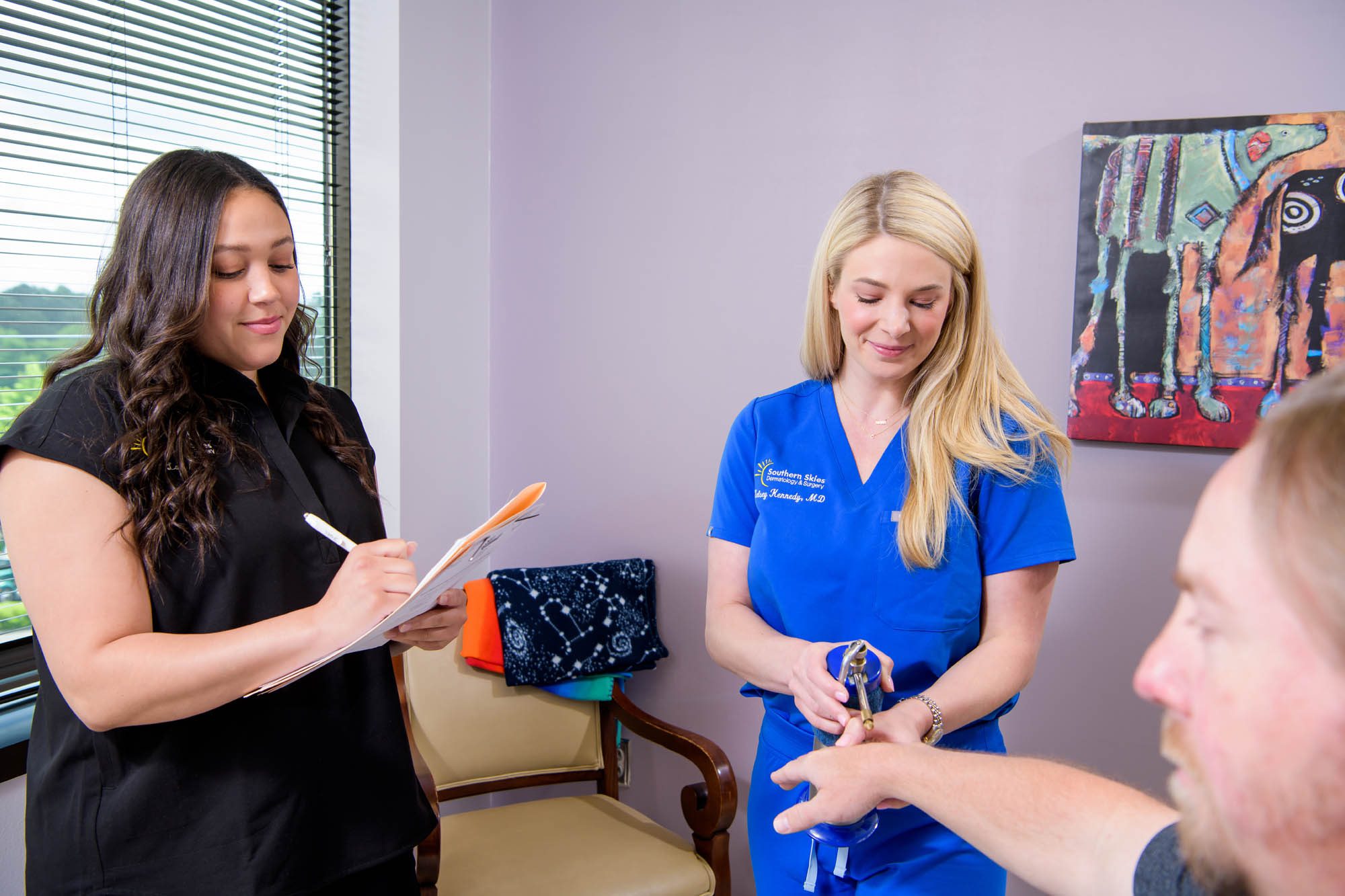Mole Removal
Birmingham’s Top Mole Removal Practice
Moles, or melanocytic nevi, are common occurrences on almost everyone’s skin. People may have one or two, some have dozens. They’re usually flat and brown in color. There are three main types of moles. Congenital moles are those that people are born with, acquired moles appear as you age up to around 30 years old, and atypical moles are moles that look unusual and may or may not be dangerous.
You should never attempt to remove a mole at home.
Always consult a dermatologist – the procedure is quick and mostly painless. If we remove a mole, we will send it off to the pathology lab for assessment under the microscope to ensure it is not dangerous.
-
 Most moles don't need treatment, but you should see a dermatologist right away if you notice any change in color, size, or symptoms such as pain, itching, soreness, or bleeding.
Most moles don't need treatment, but you should see a dermatologist right away if you notice any change in color, size, or symptoms such as pain, itching, soreness, or bleeding.
-
 Most moles don't need treatment, but you should see a dermatologist right away if you notice any change in color, size, or symptoms such as pain, itching, soreness, or bleeding.
Most moles don't need treatment, but you should see a dermatologist right away if you notice any change in color, size, or symptoms such as pain, itching, soreness, or bleeding.
About Mole Removal
Moles are typical and expected – which is why many patients don’t notice when something goes wrong. If you see any changes to your moles, it could be a sign of skin cancer. It’s a good idea to make an appointment for a full-body check-up, focusing on any moles or beauty marks. If a mole is aesthetically displeasing, painful, or cancerous, your doctor may remove it for you with a simple outpatient procedure known as mole removal.

Frequently Asked Questions
Is removing a mole permanent?
Yes, mole removal will have long-lasting results. Your mole should not grow back. If it does, it could mean that some part of the mole was left behind, or it is more dangerous than initially thought and should be assessed further.
What's the recovery process for a mole removal procedure?
After removal, all that is typically required is applying petroleum jelly and keeping the healing wound covered with a bandage or band-aid.
Does mole removal require anesthesia?
Usually, yes. The doctor will be removing a small piece of skin with a scalpel and will likely give you a local anesthetic or numbing cream before the procedure.
Can removing a mole cause cancer?
No! While this seems to be an urban legend that scares many patients, in truth, having your mole diagnosed and removed by a professional can address any skin cancer concerns.
Our Locations
48 Medical Park Dr E #458, Birmingham, AL 35235
- Get Directions
St. Vincent’s St. Clair Outpatient Clinic
7063 Veterans Pkwy, Pell City, AL 35125
- Get Directions
300 Medical Center Dr #402, Gadsden, AL 35903
- Get Directions

1400 Highway Dr Ste C, Oxford, AL 36203
- Get Directions
Make Your Appointment Today
Your skin’s health is vital. Our team of world-class doctors and surgeons are here for you, whether you need a full-body examination, biopsy, or skin cancer treatment, in a clean and caring environment. Call us today and schedule an appointment! We’re looking forward to seeing you.

